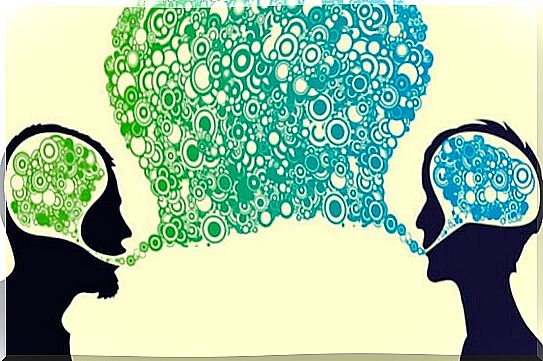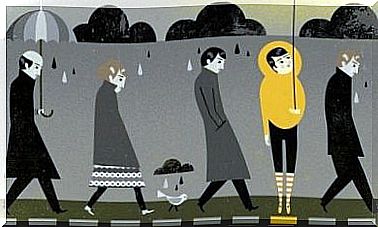The 7 Factors That Affect Social Skills

Social skills are strategies for interacting with other people effectively. They include abilities and attitudes. We may be born with a disposition to possess them, but fundamentally these skills are learned and developed.
It is very common that we are told about social skills as well as communication techniques. The problem runs deeper, however. First of all, you have to achieve a certain harmony and balance with yourself in order to truly develop them.
Having social skills is not the same as being an extrovert, or having millions of friends and / or followers. It has more to do with our ability to build and process relationships with others. In other words, to avoid conflict and promote healthy relationships.
Social skills are so important that a study at Stanford University concludes that they directly affect professional success. It means a better job, a better salary and a greater sense of well-being. What factors influence these capacities? Find out more in the rest of this article.

1. Self-esteem, one of the factors that affect social skills
Self-esteem is equivalent essentially to the fact of accepting and s e value as we are. It’s not about seeing yourself as better than others or being adept at imposing yourself on others. It also does not mean compliance or passivity.
On the other hand, it does involve the ability to see ourselves as we are and to feel fundamentally comfortable with it. Feeling that we deserve positive situations in our lives. Easily forgive our mistakes and take care of ourselves. In short, to have a good relationship with ourselves.
2. Self-control
Self-control is not the ability to suppress our emotions when necessary. Rather, it is the ability to manage our emotions, so as not to harm others or ourselves.
We control ourselves when we voluntarily set limits on our behavior. We are developing mechanisms and strategies to avoid crossing these borders. This is a decisive factor in the development of social skills because it places the responsibility on ourselves, not on others.
3. Assertiveness, a factor that affects social skills
Assertiveness is a factor closely related to communication skills. It is one of those elements that determines social skills and is the result of learning and practice. We are not born assertive.
It is easier to be assertive when our parents are also assertive and instill it in us by their example. Otherwise, we can always work on how to express ideas and emotions in reaching to be clear and precise and empathy toward others.
4. The conversation
A conversation is one of those times when social skills come into play. It is strongly linked to assertiveness. It has to do with the way we exchange information, ideas and feelings.
A good conversation is a conversation in which there is a cohesive and balanced exchange. It assumes that the people involved are discussing something that they really want to talk about. Let them express themselves and listen to each other, without wanting to impose themselves or to prove something to others.
5. Persuasion
Persuasion is the ability to influence the beliefs, behaviors, attitudes, intentions and motives of others. It is a complex skill because of its psychological and ethical implications. This is a specific characteristic of leaders.
Healthy persuasion based on an agreed commitment, the moral authority and reciprocity. I accept what you say because you have reasons to say it. You don’t lie to me and you also believe in me. I agree to do what you suggest, because you set an example and I can trust you.

6. Empathy, an essential factor when it comes to developing social skills
Empathy is one of the pillars of social skills. It relates to the ability to perceive the feelings of others and to respect them. It is indeed impossible to have good relationships with others without a strong dose of empathy.
One interesting aspect is that someone who is genuinely empathetic helps make those around them empathetic as well. Someone who possesses this ability is very valuable in their environment, as it greatly facilitates the recognition, valuation and respect of diversity.
7. Presence
Presence is about how other people feel when they are around you. Or, in other words, how you make other people feel. This is what we colloquially call good or bad “vibrations”.
Some people exhaust you in two minutes and others make you feel serenity and harmony. This presence factor depends on your attitude towards others, including conscious and unconscious expectations and demands.
It is worth improving our social skills, because they improve our quality of life. Rather than fixing your gaze on our relationships with others, the most important thing is to look inside and observe. What factors do we need to strengthen in order to have better social ties? That is the question.










